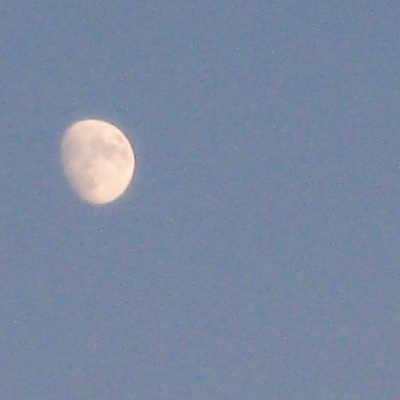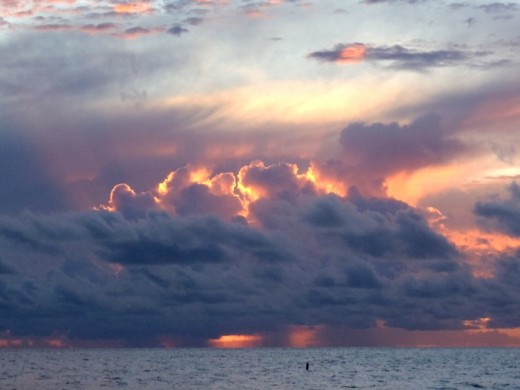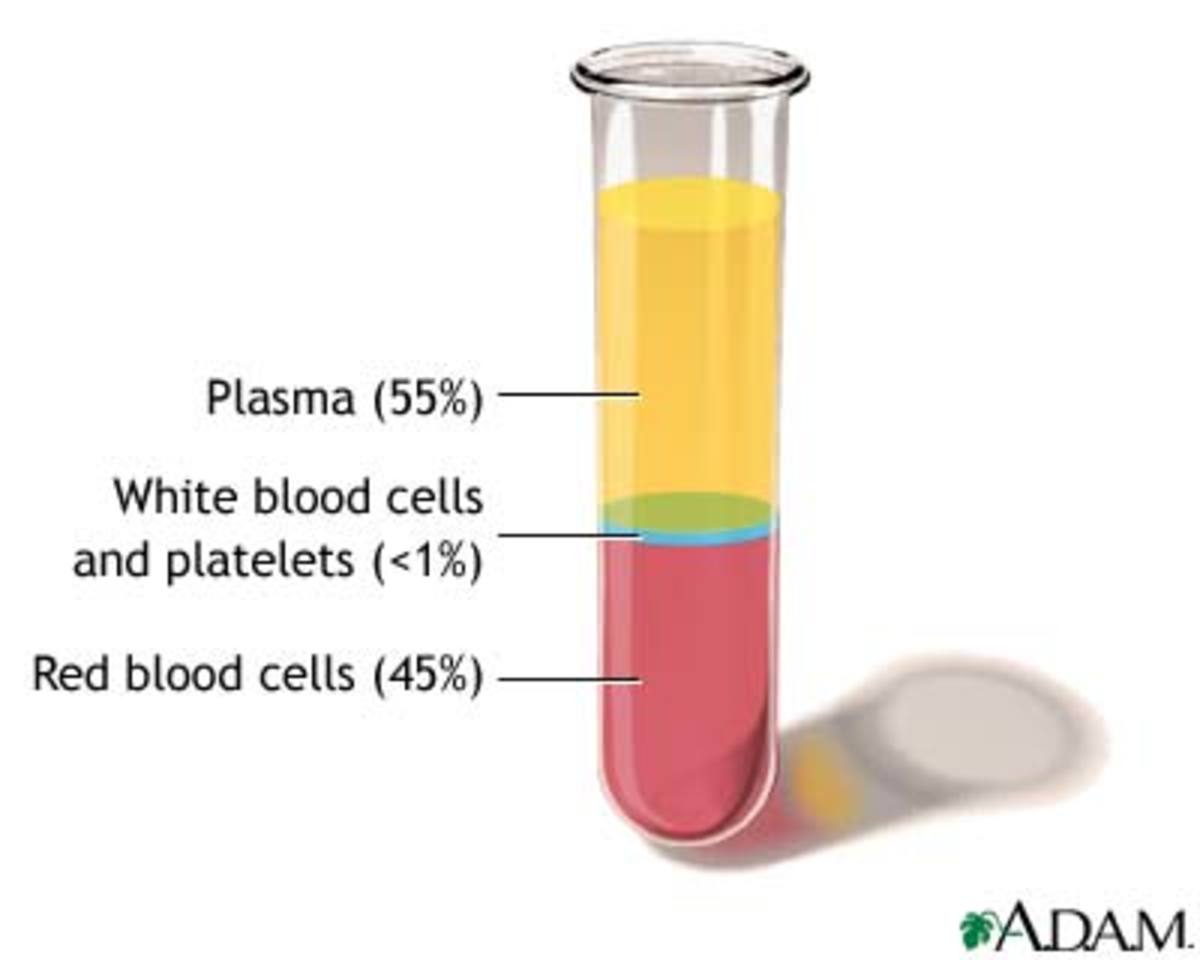Will humans ever live on the moon?

Newt and the moon colony
The idea for this hub came from the suggestion by U.S. presidential candidate Newt Gingrich that the United States should try to establish a colony on the moon.
He was widely ridiculed for his suggestion.
Here's what I have to say to Newt Gingrich: Good for you.
A moon colony may not be possible, but Newt Gingrich has every right to suggest one. Somebody has to think, to suggest, to provoke, to stir the pot a little bit.
In this hub I'm going to consider the idea of people living on the moon, as opposed to shuttling people back and forth to a moon colony. Read on to find out what it would mean to live on the moon, and how feasible it would be.
"Humans already have lived on the moon!"
No, we haven't.
We have been to the moon, as part of the Apollo project.
That's different.
Yes, the Apollo astronauts walked on the moon. They slept there. They ate and drank there. They took pictures, and hit a few golf shots.
We could scale up what they did. We could send up fifty people. We could have them stay for a few weeks or a few months, instead of one or two days. We could call it a moon colony.
But it still wouldn't count as living on the moon.
The Apollo astronauts were just holding their breath underwater.
Holding your breath underwater
Have you ever tried to hold your breath underwater?
I did, when I was a kid. I could swim underwater the length of a pool and back. I thought I was pretty cool. I read the Guinness Book of World Records to see who had held their breath the longest underwater. The record was something like 4 minutes and change. I was like, "Whoa! That's impossible!" The record now is more than 19 minutes, held by Peter Colat, a Swiss freediver.
But there's a catch to holding your breath underwater.
You eventually have to come up for air.
Yes, I just stated the obvious, but it applies to living on the moon.
If you have to come back to earth, then you are not living on the moon. You are just holding your breath underwater. You might be able to hold your breath underwater for a really long time, with some assistance. Richard Presley of the United States stayed underwater for 69 days, 19 minutes. We could do something like that on the moon. But we would still just be holding our breath underwater.
So what does it mean to live in outer space?

A reasonable standard
Here is a reasonable standard.
Five generations, no support.
If you stay on the moon for five generations, with no support from anyone on earth, you are living there.
If you don't, you aren't.
Sound like a long time?
Maybe you haven't thought this through.
When people talk about a moon colony, they have their eyes on a bigger prize. They are thinking about living on the moon permanently. They are thinking about Mars. They are thinking about interstellar travel. Those are the dreams, and the time frame for those dreams is forever. Nobody dreams of mankind reaching out for the stars, then returning home with a suitcase two months later.
Seen in that light, five generations is a very short period of time. I chose five generations because human beings typically confine their thoughts about time to five generations, their own, the two that preceded them, and the two that will follow them. That takes us from our grandparents to our grandchildren. Let's not consider the millions of generations that would be the goal if we were ever to invest our fate in interstellar travel. No, let's stick to five generations, and see if we can do that first.
But even five generations living on the moon is an impossible standard to meet, as we currently understand our own biology and the physics of the universe.
Let's start by thinking about what it would mean to live underwater for five generations, which would be an easier task to accomplish than living on the moon.

Five generations underwater
Living underneath the ocean would be easier than living on the moon because a number of difficult problems would already be solved for you. In particular, you would have something to eat and something to drink. You wouldn't have to put any effort into planting or cultivating crops if you lived underwater. You could simply harvest fish and algae. You could use heat energy to desalinate water, in an apparatus near the surface of a warm, shallow sea.
You could also provide yourself a nearly ideal temperature, depending on where you built your undersea habitat. And the ocean would protect you from harmful solar radiation, which would be a problem on the moon.
What about air? Here is where your problems start. You can't pipe air down from the surface. That is cheating. You are not allowed to have contact with the surface. That is holding your breath underwater.
You could electrolyze water to produce hydrogen and oxygen. But where would you get the energy to do this? You could drill oil wells underwater, but that is a finite resource, and hardly practical, without the support of factories in a world that you no longer have communication with. What else could you use for energy? How would you breathe?
Let's talk about your home, your actual living structure. It would have a tendency to be buoyant, because it would be filled with air. How would you keep it on the ocean floor? Forget about using metal weights or cables or anything else made of metal. Seawater is extremely corrosive. Any metal materials that you use in the construction of your home would only last a couple of years at anything near full strength. Concrete wouldn't work either, at least it wouldn't work for five generations. Seawater corrodes and cracks concrete. You might get a generation's worth of protection for your metal cables with a concrete barrier. But you need more than a generation. You could use plastic to build your home, but it might not be as strong as you need, or as heavy.
Your home needs to be perfect. Don't think of the Roman Coliseum, which is still standing after many centuries. That's not good enough. Your home needs to be absolutely watertight, not crumbling, for least five generations. And your home is going to be stressed. There are earthquakes and currents underwater. There are landslides underwater. Even leaving your home through a hatch on a daily basis would stress the construction. There has never been a door made yet that worked for hundreds of years, perfectly. How would you make repairs? Do you have spare parts and materials underwater already? Where? Do you have tools? Do you propose to build a factory underwater, itself with all of the problems inherent in building your home? What if you needed more that one factory underwater? What if you needed a dozen factories, or a hundred, or a thousand?
And what would you wear? A rubber suit? I guess that would work for outside your home in the water, but you would still need clothes inside. What will you do when your inside clothes wear out? There is no cotton underwater. There are no sheep underwater. What material will you use for clothing? What about everybody else that is living down there with you? What will they wear? What about when they have babies? Where will the babies get rubber suits from? Where will they sleep? How long will the beds last, with wet people lying down in them every night? Are you going to build an enormous storage unit underwater just for rubber suits and clothing mattresses that the population will need over five generations? Even something so simple as clothing and bedding poses an almost insurmountable challenge, if you can not have contact with the surface of the earth at all. Remember, you must depend on your own resources underwater.
What about health care and social issues? You may be thinking that everybody would get along in close quarters under the sea, but there is a chance that they won't. What about when somebody gets sick? What if it is contagious? You can't quarantine them. Do you force them out the hatch to die? You could vote to make that decision, but you would cause irreparable damage to relationships that you have with other people underwater.
There may be severe health effects to the human organism from the pressure of living at depth. If you propose to keep your living quarters at atmospheric air pressure, then the building has to be much stronger than you originally planned, and you still might suffer from the changes in pressure, because you would experience sea pressure when you were outside the living quarters.
I'm going to stop here.
I could write a hundred more paragraphs about the difficulties of living underneath the sea. No, I could write a hundred books about it. Your imagination could do just as well. At some point we have to concede that the whole thing isn't going to work. The problems are insurmountable.
Let's look at living on the moon.
Man on the Moon
One major problem you would have on the moon that you wouldn't have underwater, is what would you eat?
You would have to set up greenhouses or some other place where photosynthesis could take place. But these greenhouses would present significant technical challenges, in terms of controlling temperature and light to simulate conditions on earth. You would need to provide insects for pollination. It may be feasible to construct such an apparatus on an experimental basis, but how would you make it large enough to feed a colony, especially for five generations? Each Apollo rocket was an expenditure of many millions of dollars, and the payloads were small. How do you get enough materials on the surface of the moon to build any kind of significant structure? It might take several hundred rocket launches the size of the Apollo launch to build a sturdy greenhouse. And the greenhouses, like all structures on the moon, would have to be extremely sturdy. For starters, they would be vulnerable to strikes from small meteors, which reach the surface of the moon with much more frequency than they do on earth, because the moon has no atmosphere to deflect them.
Then there is the risk posed to humans from the extreme levels of solar radiation on the moon.
It does appear that the moon has water, trapped in ice at the North Pole. That could serve as a source of water for a time.
The problems with clothing and repair of facilities are the same as they are in the ocean. Where do the materials and the facilities come from to manufacture such basic necessities as clothing and materials to repair structures?
Air to breathe is another problem. Electrolysis of water at the North Pole of the moon might work for a time, but you don't want to really waste your water that way either. Gases will escape into space, and then the water is gone forever.
It's not happening. Let's face it. We are no more going to live on the moon than we are going to live on Jupiter.

The best laid schemes of mice and men
There's another factor at work here. Some people call it Murphy's law.
Some people quote Robert Burns:
"The best laid schemes of mice and men go often askew."
We all know the idea. Things go wrong. People screw up. Machines break. You know what happens.
I've seen two space shuttles disintegrate in my lifetime.
They represented the financial resources and expertise of the most powerful nation on earth. Their construction was planned by the collective intellect of thousands of the most brilliant minds in the world, and carried out in the finest industrial facilities in the world.
They failed.
Read about the Apollo missions sometime. Stuff was always going wrong, almost every day, even on the Eagle, when men first walked on the moon. Yes, NASA did some brilliant work at times to bring astronauts in danger back to earth, but at the rate things were going wrong, do you think they would have been able to get away with running any of the individual missions for five generations without a fatal error? I don't like their chances, not when equipment was starting to fail only a day or two after leaving earth.
Imagine that a supercomputer controlled all of the agriculture on the moon. Do you picture that computer working without a hitch for five generations? Really? I have problems with my computers usually the first day I get them. Not life and death problems, but if my computers were the moon computer, they might have been life and death problems. Remember, IBM isn't up there to fix your fancy moon supercomputer when it goes bad. You're on your own.
We have to face the reality of our own competence.
Even if some extraordinarily brilliant person were able to design a technical solution to all of the problems of living on the moon, or come up with the perfect plan for living under the sea, we couldn't count on the plan to go right. In fact, we could almost certainly count on the plan to go wrong.
We humans have done some amazing things, but on the other hand we can't even design a light bulb that doesn't fail.
Funniest book ever... Seriously...
Red blood cells in pine trees
"An expert is somebody who knows more and more about less and less."
I learned that saying in graduate school. I used to repeat it to my faculty adviser. It annoyed the heck out of him.
There is a point that the experts are missing in their study of the feasibility of living in outer space.
When you give a problem to an expert, they immediately go about trying to solve it. Whether through pride or shortsightedness, too often they don't think first about whether or not the problem can be solved.
I'm going to tell a silly story to try to explain it.
I used to wonder about red blood cells living in pine trees. Now where I got a strange idea like that, I don't know. But I am not making this up. I really did imagine that red blood cells were somehow gifted with thought, and they learned that there was a universe outside of the body where they lived. They became intrigued with this outside universe. They learned of air and rocks and trees and barnacles, and pine trees in Colorado. Every new discovery was as fascinating to them as galaxies and nebulae and the farthest reaches of outer space are to us.
There was one red blood cell named Red, that lived inside a guy named Fred in Montclair, New Jersey. Fred wasn't doing too well, and his days were numbered. Red was a dreamer, and tried to convince his fellow red blood cells that their destiny lay outside Fred's body. Red wanted to plan a mission to live at the top of a pine tree in Colorado.
Some of the other red blood cells were skeptical, but a few experts began to seek solutions to every technical difficulty. Cold? They would wear little heated red-blood-cell spacesuits, and laugh with impunity at the January snowflakes in Colorado. Nutrients? They would find a way to construct heated petri dishes inside the trunks, with exactly the right amount of salt, sugar, and proteins. It all looked good on paper.
I never took the story farther than that in my mind, because I knew how it turned out. How could a red blood cell possibly live on top of a pine tree, or anywhere else, outside of a body?
See, when you mention space travel to an expert, they go right to work on the problems, like Red's fellow red blood cell experts, who went to work solving the problem of red blood cells living in pine trees.
Experts don't see forests, they see trees.

The ocean is our home
It's hard to get away from the ocean.
The first cells, more than three billion years ago, exchanged gases and organic compounds through cell membranes with the ocean that surrounded them.
Sound familiar? It should.
We still do business the same way.
The cells in your body exchange gases and organic compounds through their cell membranes with a liquid medium that surrounds them, your blood.
We never left the ocean. We learned to carry it around inside us.
So of course it is tough for us to get away from the ocean. We have never lived anywhere else.
You might think that you live far from the ocean, if you live in St. Louis, Missouri. But it is water from the ocean, evaporated into the atmosphere, that falls around you and makes life possible where you live. Your whole body would dry out into bone and powder, like a cattle skull in the desert, if it weren't for the ocean.
That's the thing about the moon. There is no ocean.
And the evaporation from our ocean doesn't reach out into outer space.
Limitations
Life does not get better and better with time.
It may seem to, but there are limitations.
If you draw a graph with "My age" on the X-axis, and "How well things are going for me" on the Y-axis, then eventually the line crashes down when you die. You end up with a Y-value of zero, at least in this plane of existence.
But even before then, you will suffer disappointments and setbacks as well. Everybody does. You will not be the richest person in the world, marry the most beautiful woman or the handsomest man, live longer than everyone else, be more spiritually fulfilled than everyone else, and be the smartest person wherever you go, all at once. Life doesn't work like that.
Nobody likes these limitations. But we all have to live within them.
Wise men say we should spend our lives preparing to die. They don't mean that we should seek death. They mean we should be at peace with ourselves. Our amends should be made. We should accept our deaths not as extraordinary or terrible events, but as the only possible outcome to our lives, no matter how well-lived.
The human race has limitations too. We may not carry on forever.
We know now that even if we manage to avoid doing ourselves in with a nuclear war, and somehow discover the ability to work together in harmony to fulfill common goals, the sun is still going to expand in so many billion years and fry planet Earth to a crisp.
It is not a good outcome, kind of like looking at your own death. And we don't like that.
But it may be the story of the human race. And maybe we need to prepare for it.
We may not be able to get away to other planets.
We are liquid life that has adapted to a moist environment. But it is hard for us to get away from the ocean.
Moon Poll
Would you go to the moon, even if you couldn't take your cat?
I've always been a dreamer
"You know I've always been a dreamer."
Take it to the Limit, The Eagles
I love that line.
It may sound crazy, after all I've written in this lens, for me to say that I still believe that we need to explore the possibility of living in outer space.
I believe that we need to explore the possibility of living in outer space.
Frankly though, I'm wary of other people who want to explore space.
Not everybody is honest like you and me. Some people say one thing, and do another. They hide agendas. People might tell you that they are exploring space, when what they are doing is preparing for nuclear war.
Here is a quote from Project Apollo: A Retrospective Analysis, a page at the National Aeronautic and Space Administration (NASA, the United States space agency) history server, about President John F. Kennedy of the United States, who greatly expanded the funding given to NASA:
Kennedy as president had little direct interest in the U.S. space program. He was not a visionary enraptured with the romantic image of the last American frontier in space and consumed by the adventure of exploring the unknown. He was, on the other hand, a Cold Warrior with a keen sense of Realpolitik in foreign affairs, and worked hard to maintain balance of power and spheres of influence in American/Soviet relations. The Soviet Union's non-military accomplishments in space, therefore, forced Kennedy to respond and to serve notice that the U.S. was every bit as capable in the space arena as the Soviets. Of course, to prove this fact, Kennedy had to be willing to commit national resources to NASA and the civil space program. The Cold War realities of the time, therefore, served as the primary vehicle for an expansion of NASA's activities and for the definition of Project Apollo as the premier civil space effort of the nation. Even more significant, from Kennedy's perspective the Cold War necessitated the expansion of the military space program, especially the development of ICBMs and satellite reconnaissance systems. (underlining mine)
In other words, NASA was funded by Kennedy at extraordinarily high levels, because he knew it would contribute to Intercontinental Ballistic Missile (ICBM) and military satellite technology.
Now, nuclear war is not a very popular thing. Most people oppose it. So it is difficult to ask people to commit a tremendous amount of national resources to prepare to fight a nuclear war.
Politicians like Kennedy don't want nuclear war either. They think, "By preparing to fight a nuclear war, we are avoiding one." But that kind of logic doesn't go over too well with the public. It is too abstract a concept for the ordinary person to get a hold of.
Kennedy's brilliant solution was to sell research into ICBM and military satellites as a race to the moon. The public went for Kennedy's sleight of hand and ever since has interpreted NASA's mission as a noble, science for science's sake, exploration of the possibility of mankind living among the stars.
ICBMs are rockets that go into orbit when launched at a target, and later reenter the earth's atmosphere. Military satellites are launched as the payload of rockets. All of NASA's advances in rocketry were also advances in ICBM technology and military satellites.
Now NASA was and is a huge organization, and like any large human endeavor, there are people with all kinds of belief systems working for NASA. Many of them, no doubt, are intrigued by the possibility of living among the stars--in fact, it may be the main focus of their lives, their reason for being, their obsession.This was no doubt as true in Kennedy's time as it is now. But the possibility of living among the stars was not what got them the money. ICBMs and military satellites were.
I have recently read some articles from former NASA executives and technicians in the news media, pleading for a renewed commitment to researching life among the stars.
Renewed?
I admire the brilliant people making these appeals. I respect them. But you can not renew a commitment that was never there. Research into the possibility of living on other planets by NASA was a spinoff from an essentially military endeavor. What we need is an initial commitment, by somebody, anybody, to research space travel, and the money to carry it out.
It is hard to see where the money comes from. The organizations that accumulate the largest amounts of money in the world, governments and multinational corporations, do not tend to fund humanitarian missions at the high levels that research into space travel would require to be successful.
The post office doesn't work!
I once lived somewhere the post office didn't work. It was slow, inefficient, and post office officials sometimes opened parcels and stole items.
I have also lived where the post office does work.
In the place where the post office didn't work, many people didn't realize that an efficient postal service was possible. With no external frame of reference for comparison, they believed that post offices in general must all work more of less the way that theirs did.
A few people had visited other places where the post office did work, and their consciousness had been changed forever. They ardently railed against the inefficient post office, and lobbied constantly for change.
I bet they would be successful, given enough time.
But what if there had been nowhere that the post office did work well, to provide an example?
Usually people who propose radical changes of consciousness, and new ways of doing things, are labeled dreamers, naïve, unpatriotic, subversive, or worse. But their vision may be clearer than any of ours.
We know now that virgins don't have to be sacrificed to have the crops come in, but if you had tried to explain that in certain societies at certain times in human history, you would have been met with the full wrath of the established power structure, striking at you with conventional wisdom, and wholly backed by important intellectual, religious, and moral authorities.
Abandon sacrificial virgins? Preposterous.
And you may not have had another frame of reference to point to. The weight of all history, as understood by your society, may have backed up the idea that sacrificing virgins was necessary to make the crops come in.
But as an individual with a conscience, what else could you have done, but speak your mind? If you had caught a glimpse of the truth, that virgins didn't have to be sacrificed to make the crops come in, then you would have had to say so, unless you were some sort of a pathological liar or had an extremely malleable conscience. Nobody can force an honest person to say that 2 + 2 = 5, as Orwell so brilliantly pointed out in 1984.
Today many people are ready to tell you that human beings must always be at war with each other. I don't believe such people, and particularly not when they reference studies of animal behavior. We have shown and continue to show, in almost every aspect of our daily behavior, that we can act contrary to instinct, adapting ourselves to social structures that are designed for the common good. That's what it means to do something so simple as wait in line for food.
We may understand someday that research into the possibility of living in outer space, not military research disguised as such, is in our own best interest. We may devote the necessary resources to bring such a project to fruition.
It is no harder than believing that the post office can work.

My home
I took a bike ride today.
The air was clean and warm.
I saw pelicans flying over the ocean.
Earth is a good enough spot for me.
Even if we don't make it off this beautiful wet rock, it's been a great place to live.
















